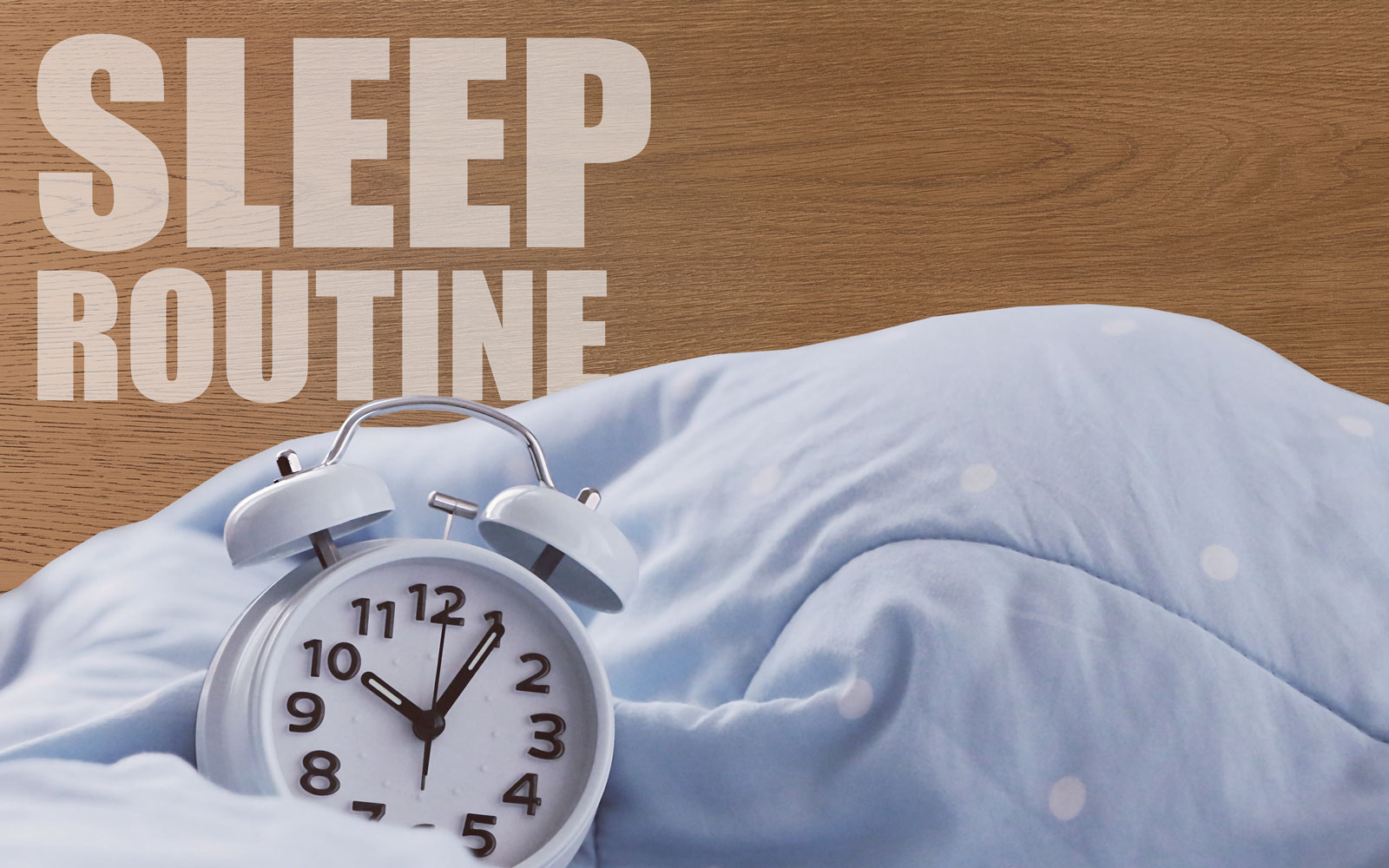
28 Mar SLEEP ROUTINE
Sleep is very important to our health. So important, in fact, that any sleep deprivation can have serious implications on every aspect of our lives. Thankfully, there are things we can do in order to enjoy a restful, high quality sleep every night. One of them is a consistent, well programmed sleep routine.
Keeping a constant bedtime every night, is something that can help us fall asleep easier and sleep better. It’s quite simple to find out how many hours of sleep we need on a daily basis and then organise our routine accordingly. It only takes a few easy steps. Before we start, though, we need to remind ourselves that all habits need some time to sink in, so there’s no reason to feel disappointed if we can’t keep our schedule right from the beginning. We keep trying until we make it!
To set our bedtime, all we need is knowing what time we have to get up and then count backwards at least 7 hours. 7 hours is the amount an adult usually needs, but every person is different. Therefore, if you do need 8 or 9 hours, make sure you set up your bedtime accordingly. It is important that we keep the same bedtime and wake up time every day – even on weekends. Even so, if you can’t stick to it every day, make sure you do keep your bedtime and wake up time for the biggest part of the week.
While setting our bedtime, we should also take under consideration the fact that we usually get less hours of sleep than we think we do. This happens because it takes some time to fall asleep once we are in bed but also because of the small awakenings we experience during the night. So we need to take into account these times when calculating the required sleeping hours.
Also, about half an hour before our bedtime we can begin our relaxing process, so we are ready to fall asleep at the set time. Some people find a “lights out” reminder quite helpful, so this is something you can try. In any case, the hour before we go to bed is essential that we keep away from any screening activity, since the blue light these devices emit can suppress the production of melatonin, the sleep hormone. This makes us stay alert even when we want to fall asleep.
Another very good way to get rid of the day’s tension is a few simple yoga exercises combined with meditation. Consider doing a few breathing exercises and some light stretching, which would help you to relax or focus entirely on your breathing and dedicate your pre-bedtime to meditating.
Additionally, some people find writing a to-do list with everything that needs to be done the following day, very helpful. This way you can tackle your worries for the day to come and fall peacefully asleep. This is also the ideal time to write your journal. Many studies have shown that putting our worries on paper helps us sooth ourselves and makes us sleep better. The more detailed our list is the easier will be to calm down and sleep quietly.
Another appropriate activity for our night routine is reading a relaxing book (remember, no screens, so the book should be in printed form). We can pick something pleasant but easy, almost boring, since if we choose something too interesting we will probably have the opposite result! If you like, you can accompany your book with a herbal tea without caffeine, like chamomile or passionflower.
Finally, consider the possibility of adding a hot bath or shower into your bedtime routine. Warm water can relax our body. It warms our skin and draws blood to our hands and feet, lowering our core body temperature, which in turn helps us wind down and enjoy a restful sleep.
It doesn’t matter what you will decide your bedtime routine to be. What does matter is that you try and stick to it as consistently as possible, to get better results!



